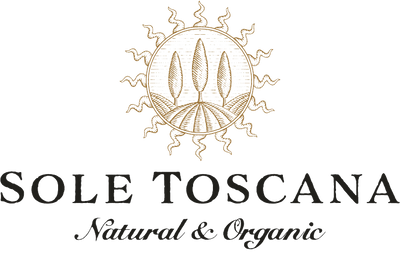There's a lot of hype going around about the human microbiome lately, both in scientific literature and in the mainstream press. Amid all this information is a lot of inaccurate data about gut health. Today, we're busting ten common misconceptions.
1. Only dietary fibers affect the gut microbiota
Dietary fiber indeed has a profound impact on the microbial communities in our bodies. However, fiber is not the only type of nutrient that affects our microbiomes. Many other nutrients (including simple sugars and fats) can also modulate the human microbiome. For example, eating simple sugars changes the microbiota of the upper gastrointestinal tract, and these effects could spread to the colon over time.
There are two ways that a food substance can change the microbiota. 1) Microbes can digest and utilize the element in their metabolic processes, and 2) the substance can alter the environment of the gut, thereby modifying the microbial communities that are present there.
2. The womb is sterile
The longstanding view in medicine is that babies don't come into contact with microorganisms until birth. But this is just an assumption. In the past decade, it has become clear that the womb is not a sterile place. The first seeding of the microbiome likely occurs before birth.
3. The microbiome is slow to change
Many people assume that it takes many months for the human microbiome to change after interference by outside forces. However, these bacterial communities change remarkably quickly. If you apply an antibacterial lotion to your skin, its elements will rapidly alter your skin's microbial environment.

4. Yogurt and probiotic supplements can restore a damaged gut microbiota
This myth exists because probiotic manufacturers put a lot of effort into constructing smart marketing campaigns to convince the public that their products are healthier than they are. Some physicians also tell their patients to take probiotics and fermented dairy foods after using antibiotics- giving the impression that these nutritional products can instantly repair the damage caused by antibiotics.
What many people don't know is that yogurt and probiotic supplements only contain a small selection of bacteria —primarily Lactobacillus spp. Even though it's beneficial, this bacterium makes up a negligible portion of our gut microbiota.
5. Each person needs a diet tailored for their specific microbiota
Yes, no two people have identical microbiota. But this doesn't mean that we should all be on different diets. This assumption is flawed because the composition of your microbiome is constantly changing. It's affected by where you've traveled, what you've eaten, the drugs you've used, etc. This fact means that the microbiota isn't a static structure whose health depends on one specific type of diet.
6. People with degraded microbiota can fix their guts by eating healthy
For a long time, people assumed that all you need to do to keep your gut microbiota in good shape is to eat healthily. This notion is overly simplistic because a person with a relatively diverse and resilient microbiota may get away with only eating healthy. However, the same isn't necessarily valid for someone whose microbiota is weaker.
Also, a healthy diet with little or no live bacteria won't restore those microbes to your gut.
7. There are good and bad microbes
Yes, some microorganisms are less friendly than others, but it's too simplistic to label microbes as either good or bad. Our microbiota consists of trillions of microorganisms, each of them with their unique place.
Some bacteria that we perceive as helpful (including various types of probiotics) can do us harm in certain situations. And the reverse is also true. It all depends on context: if the whole community is diverse and thriving, problematic microbes are controlled. If the community is fragile, harmful microbes may reproduce.
8. You require unique products to achieve a healthy microbiota
These days numerous products claim to improve gut health and microbiota composition, such as prebiotics, probiotics, and other microbiome-related products.
But most available products don't give us much benefit. And many can harm you. Ignore the hype from prebiotic and probiotic manufacturers.
Whole foods are superior to supplements because they contain a natural balance of different nutrients and compounds. Unlike supplements, they don't carry excessive amounts of one element.
9. Our guts need "ancient microbes."
This myth states that in recent times, we have lost ancient microbes, and the key to improving our health is reintroducing them through diet. Yes, a Westerner's microbiome is less biodiverse compared to hunter-gatherers. Modern lifestyles and diets have drastically altered our microbial habitats.
It's somewhat misleading, though, to classify some microbes as ancient since all organisms on earth change over time. In the long term, microbes evolve and adapt to their changing environments.
10. We need specific microbes to function correctly
This notion ignores the fact that microbes evolve rapidly and can swap genetic material among themselves. Many types of bacteria are capable of carrying out similar functions.
A microbe that's unable to do something today may develop an ability to perform that very function in the future. We must pay attention to what types of microbial species exist in the guts of different people, but let's avoid the trap that the secret to optimum health lies in a particular microbe.
With love,
The Sole Toscana Beauty Team


